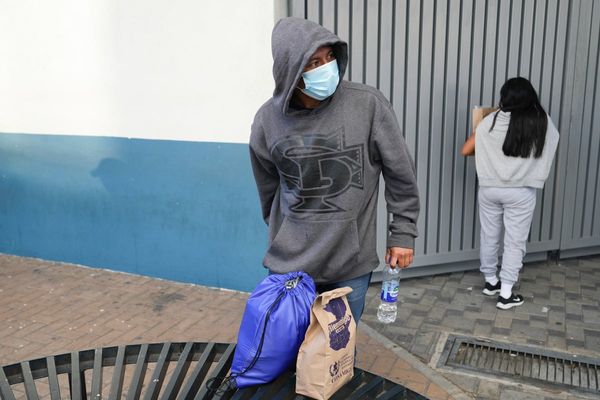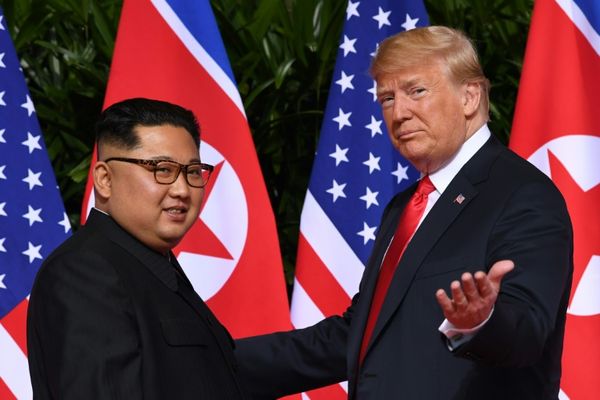
Tehran (AFP) - Iran's president paid a visit Thursday to Kurdistan province, the cradle of protests over Mahsa Amini's death, and urged people to thwart the "enemy" which his government accuses of stoking the unrest.
The Islamic republic has been gripped by protests that erupted when Amini, a 22-year-old Iranian of Kurdish origin, died in custody on September 16 after her arrest for an alleged breach of the country's dress code for women.
It accuses its sworn enemy the United States and its allies, including Britain and Israel, of fomenting the street violence that an Iranian general said this week had so far killed more than 300 people.
Ultra-conservative President Ebrahim Raisi travelled on Thursday to Sanandaj city in Kurdistan, Amini's home province and an epicentre of the protests, for the launch of a drinking water project.
"During the recent riots, the enemies miscalculated in believing that they could cause chaos, insecurity and riots," he said in a televised speech.
"But they did not know that Kurdistan had sacrificed the blood of thousands of martyrs and that its inhabitants had in the past defeated the enemy," he added, referring to the 1980-88 Iran-Iraq war.
"People are facing economic and social problems, but they know how to face the enemy with their solidarity," Raisi said.
"The new generation, who live in this region, like their mothers and fathers who foiled the plans of the enemy, will do the same and prove that they will not follow the will of the enemies, especially the United States."
Raisi's visit to Kurdistan, which borders Iraq, comes at a time of heightened tensions in the western province after more than two months of protests sparked by Amini's death.
Since the nationwide protests erupted, Iranian officials have accused Kurdish opposition groups exiled in northern Iraq of fuelling the unrest and the Islamic republic has repeatedly launched deadly cross-border strikes.
Probe into football shooting
On Monday, Brigadier General Amirali Hajizadeh of Iran's Islamic Revolutionary Guard Corps said "more than 300 martyrs and people" had been killed in the Amini protests.
Oslo-based non-governmental organisation Iran Human Rights said on Tuesday that at least 448 people had been "killed by security forces in the ongoing nationwide protests".
Thousands of Iranians and around 40 foreigners have been arrested over the unrest and more than 2,000 people have been charged, according to judicial authorities.
Meanwhile, Iran said on Thursday that it had opened an investigation into the death of a man who was shot while celebrating Iran's World Cup defeat to arch enemy the United States.
The loss eliminated Iran's national football team from the tournament in Qatar on Tuesday night, drawing a mixed response from pro- and anti-government supporters.
Following the match, "Mehran Samak died suspiciously after being hit by shotgun pellets in the city of Bandar Anzali", Gilan province's prosecutor Mehdi Fallahmiri said, quoted by the judiciary's Mizan Online website.
"An investigation has been opened and a local prosecutor has been assigned to the case," he added.
Human rights groups based abroad said Samak, 27, had been shot dead by Iranian security forces after honking his car horn during celebrations that followed the football match.
The head of the Revolutionary Guards, Major General Hossein Salami, said Iran's enemies had influenced youths who were happy with the football result.
"Today, they (the enemies) are all trying to sow the seeds of despair in the hearts of young people and some of them even showed their satisfaction afterwards and that they are happy with the elimination of the national football team," he said on Thursday.
"We must take measures to serve the people, because poverty and misery are also among the enemies of the country," Salami said, quoted by the official news agency IRNA.







